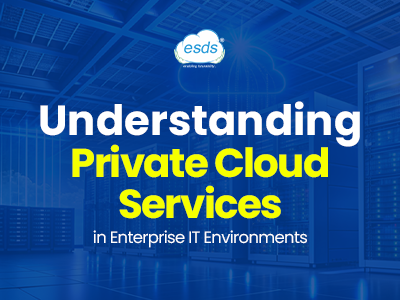Understanding Private Cloud Services in Enterprise IT Environments
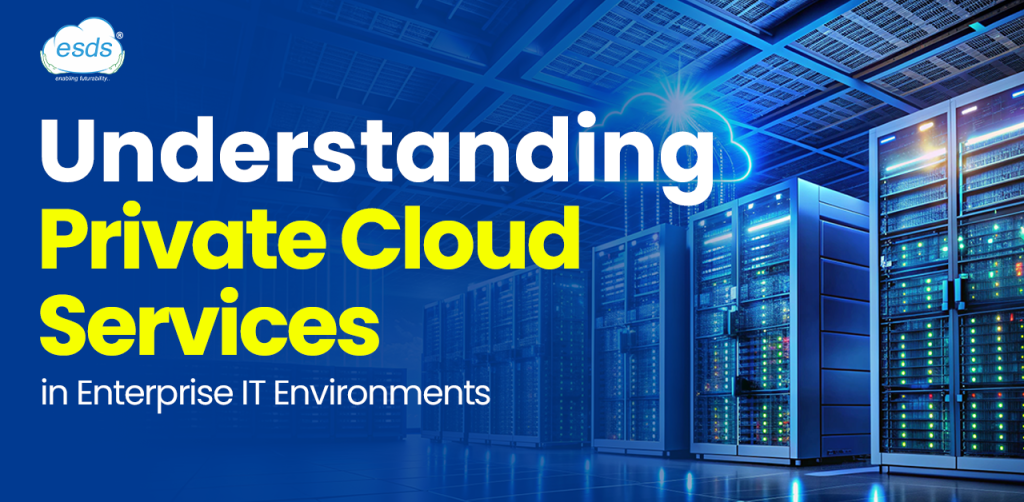
Today, in the IT ecosystem, businesses are looking for hosting models that offer greater control over data, higher levels of security, and customizable configurations. Among the options available, private cloud services stand out for organizations that require dedicated infrastructure to support their operations. These services are tailored for enterprises that provide compliance, data privacy, and internal governance.
Similar to public clouds, where the resources are shared across multiple tenants, private cloud computing provides a single-tenant environment. This model provides computing resources—whether storage, processing, or networking – are exclusively available to one organization. Therefore, organizations opting for private cloud services can define and manage their IT policy without depending on other shared protocols or configurations.
Gartner, Inc., says that by 2028, cloud computing will go from being a disruptive tool to an important part of keeping businesses competitive.
Below is the figure that gives an overview of the cloud in 2028, from technology disruptor to Business.
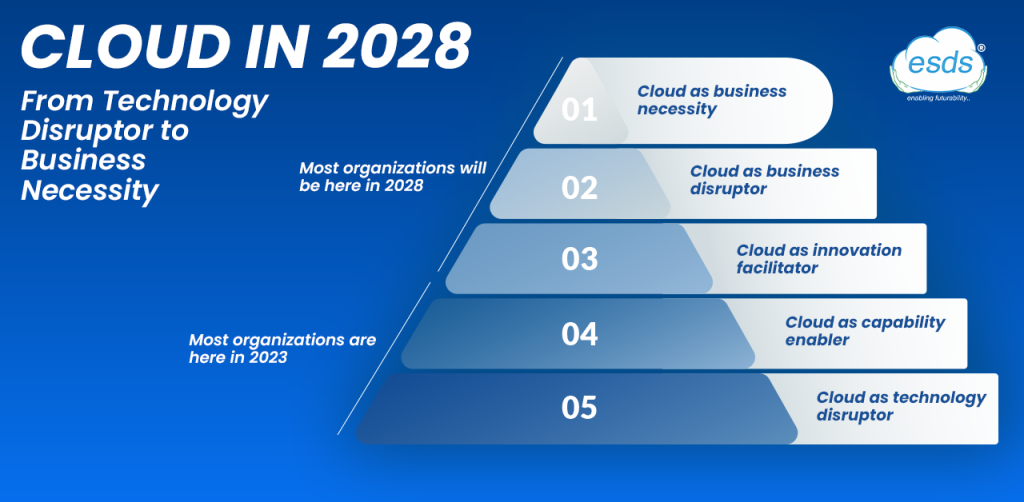
Private Cloud Computing Services Statistics
Private cloud computing is a curious concept with many commercial benefits. It involves creating a cloud architecture that is unique to one business and provides increased control, security, and flexibility. Private cloud computing makes it simple for businesses to leverage cloud technology while keeping on-site management over sensitive data and mission-critical software. As we look at cloud services statistics, let’s look at private cloud computing statistics.
What are Private Cloud Services?
Private cloud services refer to cloud computing resources used exclusively by one business or organization. This setup can be hosted on-premises, by third-party data centers, or by specialized private cloud providers. These services allow organizations to deploy and scale resources with flexibility while maintaining the internal focus on security and performance. Such an infrastructure is particularly beneficial for organizations with regulated workloads. Sectors like banking, healthcare, government, and large-scale manufacturing prefer private cloud computing due to compliance requirements and sensitive management data protocols.
Key Advantages of Private Cloud Services
One of the primary reasons organizations consider private cloud storage and hosting is the assurance of operational consistency. In the dedicated cloud server model, organizations gain greater predictability of performance, tenants, and uptime, as no other tenant shares the environment.
Here are the benefits that includes:
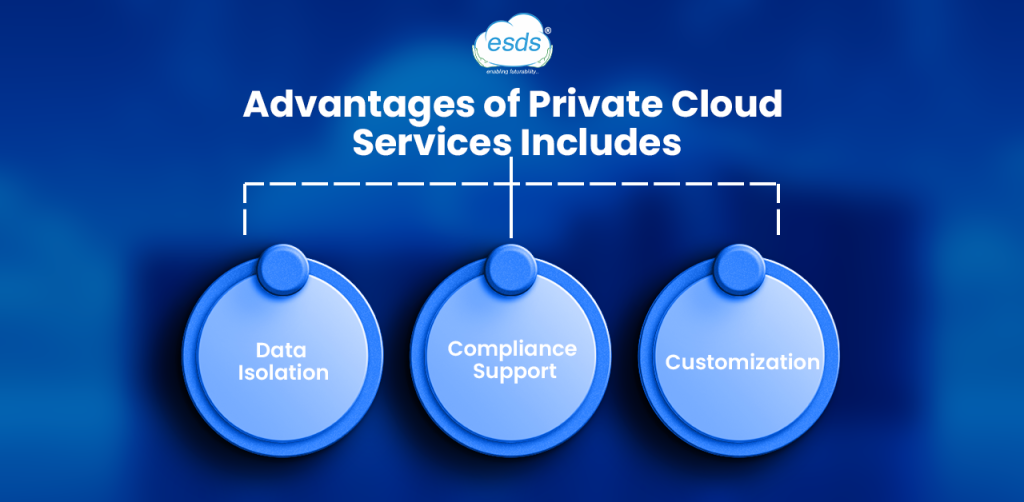
- Data Isolation: By using the private cloud storage, organizations keep their data isolated from others, reducing the exposure limit for multi-tenant risks.
- Compliance Support: Regulated industries benefit from private cloud services that can be tailored to meet specific needs.
- Customization: – the dedicated cloud server can suit the needs of the business.
Role of Private Cloud Service Provider
The role of private cloud service provider is crucial in this ecosystem. These providers offer managed infrastructure that can be fully or partially managed by the client.
Private cloud service providers offer valued services like monitoring, backup solutions, disaster recovery, and scalability management. Their ability to support hybrid deployments also enables the organization to maintain the on-premises workloads while leveraging cloud-native features in a very secure environment.
Selecting the right private cloud service providers factors include:
- Experience in managing private cloud computing environments.
- Infrastructure deployment models.
- Track record of compliance and uptime requirements.
Use Cases on Private Cloud Services
Private cloud services are suited to scenarios where security, latency, and performance cannot be compromised.
Below are the few practical use cases:
- Financial Institutions: Bank and Fintech companies operate under the strict data protection laws. With private cloud storage, sensitive information and transaction data remain protected within confined environments.
- Healthcare systems: Utilizing the dedicated cloud server setups and storing patient records ensures compliance with privacy regulations.
- Government Projects: Choosing the private cloud services to house citizen data, internal operations, and regulatory systems, which demand high levels of confidentiality and integrity.
- Legal & Compliance Firms: Firms that always deal with sensitive data often use private cloud providers that offer encrypted storage and localized access control.
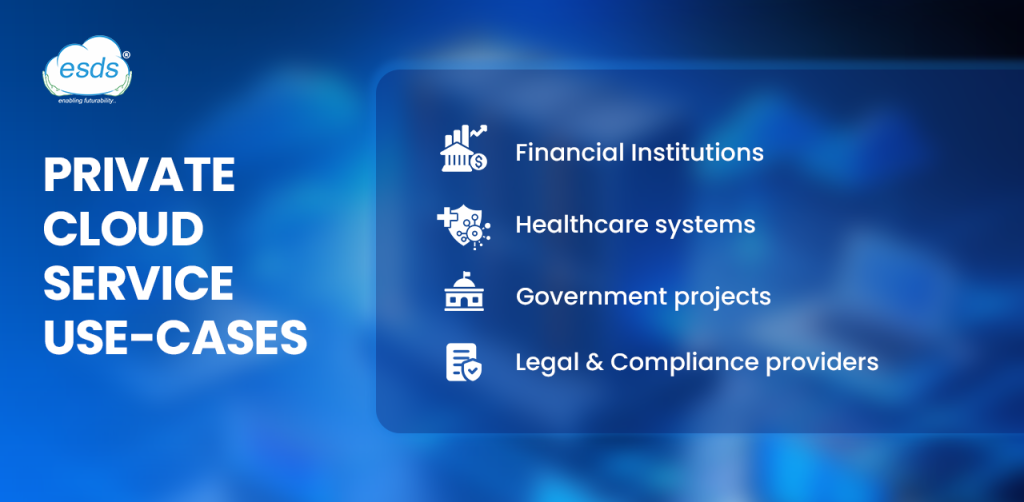
Public Cloud vs. Private Cloud: Why Go Private Cloud?
The possibilities between private cloud and public cloud mostly depend on the business goals, security requirements, and regulatory obligations. While the public clouds are known mostly for scalability and cost-effectiveness, private cloud services are more controlled environments with predictable cost structures.
In a dedicated cloud server setup, there’s no resource contention with other users, leading to consistent application performance. Additionally, private cloud storage solutions often come with enhanced options for data redundancy, retention policies, and access controls.
Future of Private Cloud Computing
The growing need for secure, scalable, and flexible IT environments fuels the demand for private cloud services, especially in regions where data localization and industry regulations are strict.
Emerging integration of private cloud storage with AI and machine learning platforms also suggests that organizations are keen on blending traditional data models with advanced analytics.
Conclusion
Organizations with complex IT environments, private cloud services present a dependable option for achieving operational goals while maintaining governance over their digital assets. From deploying a dedicated cloud server to engaging with trusted private cloud providers, businesses can tailor their infrastructure to align with both internal policies and external mandates.
ESDS Software Solution Limited offers private cloud services to customers who propose to migrate their business and corporate data to a secure, customizable, and flexible cloud platform without capital investment required for maintaining an “on-premise” cloud environment.
- Understanding Private Cloud Services in Enterprise IT Environments - April 17, 2025
- Why Do You Need Vulnerability Assessment and Penetration Testing? - March 13, 2025
- How to Choose the Right Private Cloud Service Provider in 2025? - February 27, 2025
